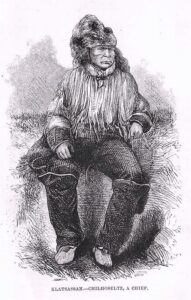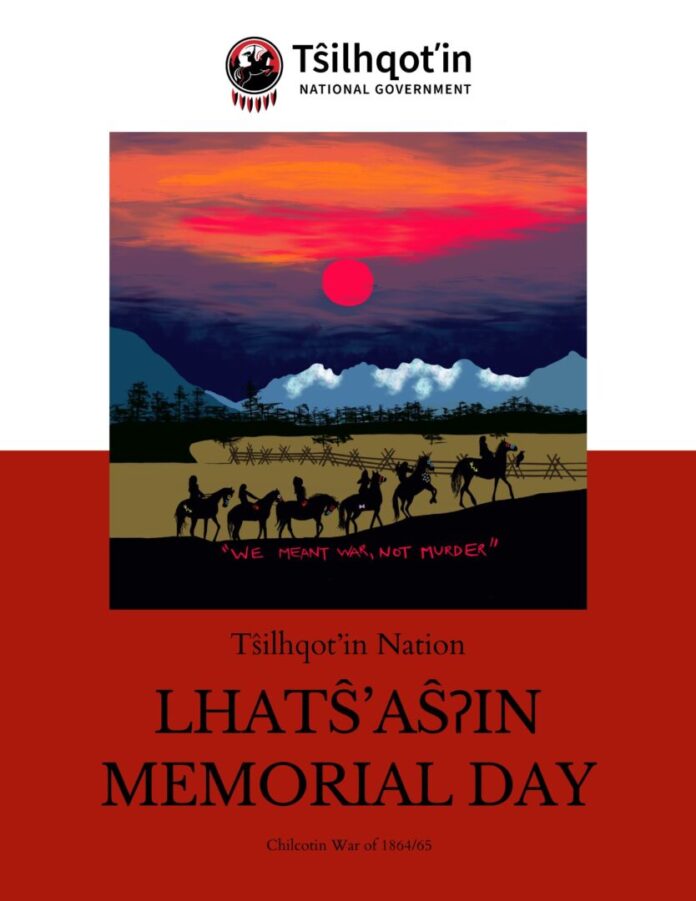Tŝilhqot’in Nation honours Chilcotin war chiefs.
October 26th is the Lhatŝ’aŝʔin Memorial Day for the Tŝilhqot’in Nation in the Cariboo. This year is the 160th anniversary of the day the five chiefs were executed in Quesnel. Chief Joe Alphonse explains that this is an important day for the Tŝilhqot’in people.
“For the Tsilhqot’in people it’s very important,” says Chief Joe Alphonse. “It’s a reminder of who we are, and a reminder of the impact that these warriors had on our nation and preserving our culture, our language, and our way of being.”
The Chilcotin War started in 1863 when Alfred Waddington began construction on the wagon road that became the main highway in B.C., connecting Blue Inlet to Barkerville. Waddington’s Road unauthorizedly entered the territory of the Tsilhqot’in. Several injustices occurred against the Tŝilhqot’in road workers and the Tŝilhqot’in people in the region.

“The main highway through British Columbia would have gone right through the heart of our territory if these warriors didn’t stand up for what they believed in,” Chief Alphonse explains. “How we look at British Columbia today is greatly affected by the actions of these warriors.”
The five chiefs were arrested and charged with murder when attending a peace talks. The five chiefs were tried in September, and hung on October 26th in Quesnel, on the same site where the hospital stands today, in one of the largest mass executions in Canadian History. The sixth chief, ?Ahan, was hung in New Westminister in 1865.
Alphonse says over 100 years later, the five war chiefs play a significant role in reconciliation. On June 26rd, 2014, the Supreme Court of Canada made a landmark decision in support of the Tŝilhqot’in Nation’s Aboriginal Title.
“The War Chiefs’ executions that happened in Quesnel in 1864, and in New Westminister in 1865… It was a huge part of the Tsilhqot’in Aboriginal right and title win. Which eventually led to the only aboriginal title win ever in Canada or in the world [at the time].”
“They constantly told us that we could never win, and you begin to start to believing in it, until the day we won. That win has cut so deep into government policy. Federally, and provincially, beyond our imagination. It’s in large part because of the actions and sacrifices of these warriors. It’s very relevant, and they’re still having an impact in every day life for a lot of people.”
Lhatŝ’aŝʔin Memorial Day was formally established in 1999. It is a day akin to National Indigenous Veterans Day, and Remembrance Day. A day of reflecting on those who have sacrificed to change the society around them and for the future generations.
Without the sacrifice of the six chiefs, Indigenous Rights may not have made the steps it has made in Canada today.
In 2014,then-premier Christy Clark exonerated all six war chiefs of any wrong doing. In 2018, Prime Minister Justin Trudeau exonerated the war chiefs federally.
Something going on in the Cariboo you think people should know about?
Send us a news tip by emailing [email protected].










